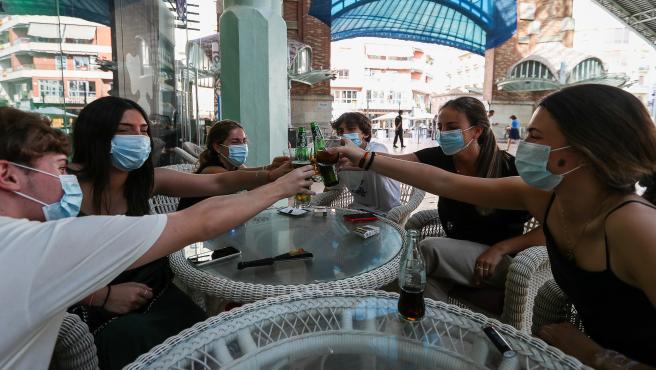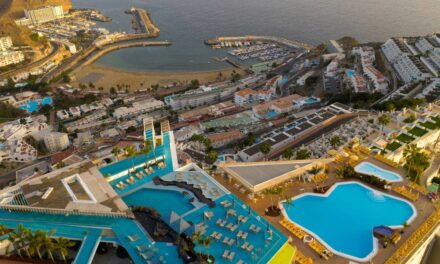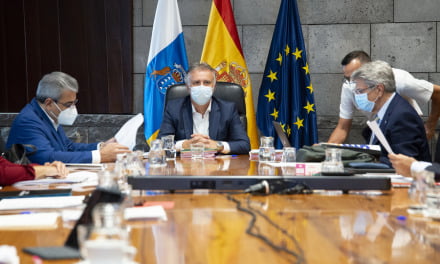 Mask guidance on Gran Canaria and the Canary Islands remains as it was, following The Canary Islands Government review of the current rules around wearing masks in public. The regional executive say they plan to intensify enforcement to ensure existing regulations are being properly met, however have stopped short this week of increasing the number of mandated settings in which they are advisable to wear.
Mask guidance on Gran Canaria and the Canary Islands remains as it was, following The Canary Islands Government review of the current rules around wearing masks in public. The regional executive say they plan to intensify enforcement to ensure existing regulations are being properly met, however have stopped short this week of increasing the number of mandated settings in which they are advisable to wear.
Face Protection must be used in all enclosed spaces and in any public area, indoors and outdoors, where a physical distance of 1.5 meters cannot be guaranteed between people who do not live together. The autonomous government has taken the decision not to follow suit with several parts of mainland Spain, who have introduced mandatory mask wearing whenever outside the home, based on the epidemiological situation here on the Islands, where we currently have just 83 active cases of corona virus, explained spokesman, Julio Pérez, after the nightly Government Council meeting.
“Today, experts consider that it is not necessary to increase mandatory use of masks, more than they already are, since they must now be used in many activities,” said Pérez, who did acknowledge that more control is needed to make sure everyone is abiding by the rules. “Public Health technical services have detected breaches of current regulations,” such as meetings of citizens on the street without distance and without protection, and within the family.
Intensifying surveillance and promoting more fines and sanctions will be the main changes that the government will undertake, focusing on a message of individual responsibility for all residents and tourists who are on the islands, since the main risk of contagion is concentrated now in private meetings that are beyond the inspection of the security forces and other bodies.
 “The message that the government wants to convey is that, today, the greatest dangers in not using masks occur in the private sphere, at family gatherings or parties where contagion can occur.” However, and unlike what has happened in other parts of the Peninsula, the size of these outbreaks have not currently been numerous enough nor sufficient for ministers to feel they must toughen the guidance. “If the rules are not followed, there will be fines, but in the private sphere it is very difficult to intervene, so we appeal to the [public’s] sense of responsibility,” emphasised the regional government spokesman.
“The message that the government wants to convey is that, today, the greatest dangers in not using masks occur in the private sphere, at family gatherings or parties where contagion can occur.” However, and unlike what has happened in other parts of the Peninsula, the size of these outbreaks have not currently been numerous enough nor sufficient for ministers to feel they must toughen the guidance. “If the rules are not followed, there will be fines, but in the private sphere it is very difficult to intervene, so we appeal to the [public’s] sense of responsibility,” emphasised the regional government spokesman.
Pérez made clear that if the epidemiological situation becomes aggravated by “activity in some sector” this decision will need to be corrected and the rules be tightened. He pointed out that “the Canary Islands has been very rigorous with its security demands and has always called for increased controls at the external borders, in addition to having carried out extensive screening among health personnel, nursing homes and migrants.”
The government spokesman re-enforced the need for masks and distancing, particularly in the classroom, when children return to school in just over a month from now. He also explained that following the lockdown some 43% of those working with the administration have said they would like to keep teleworking once the pandemic has been overcome and 61% consider that a mixed formula should be valued, according to a study prepared by the Public Administrations, Justice and Security department that Pérez heads up.













